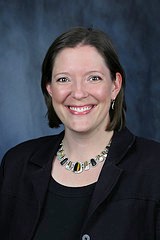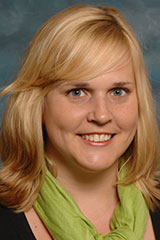| Home | Registration | Schedule | Contacts |
Workshop
Using Liberating Structures to Teach, Reflect and Work Differently
Liberating structures are simple and easy-to-learn microstructures that create unique spaces for full participation. Conventional microstructures that are well known include managed discussions, presentations, brainstorming sessions, and status reports. Liberating structures, on the other hand, change the basic expectations to create new ways of interacting. They can quickly inspire participation by everyone even in large groups. They allow participants to control the content as opposed to the facilitator or leader. Evolving from complexity science, they “tap into the collective intelligences of participants by making it possible to include all stakeholders in the conversation.” (Minich, 2010, p. 5)
I have incorporated the structures into my field courses as a way to teach, reflect, generate ideas, share knowledge, troubleshoot problems, and more. Through my own experience, I have found liberating structures to be a wonderful tool for faculty to use in their service-learning courses, as well as administrators and students to use in their meetings.
Each of the over 30 liberating structures have minimum requirements regarding time, space arrangement and actions taken by participants. They can be easily learned and applied in a variety of settings depending on the intended result. Some are better for reflection, others help participants solve problems, and still others help appreciate and share the expertise that the participants bring to a topic.
In this interactive workshop, participants will engage in some of the liberating structures while learning more about what they are, how they work, and how they could be used. The structures will include:
- Impromptu Networking – focuses on the power of making connections with others
- 1-2-4-All – allows for thoughtful reflection, discussion, sharing, and common insight
- Troika Consulting – participants gain insight from their colleagues
- Open Space Technology – participants generate the agenda to allow for targeted action, innovation and problem solving
During the liberating structures, discussions will focus on service and service-learning. After each liberating structure, the group will discuss both the content of their discussions as well as the structure. The specific directions about how to facilitate these structures as well as the basic building blocks on which all liberating structures are developed will be discussed. Additional topics of the workshop will include:
- The ten values that are highlighted when liberating structures are used.
- How to learn to facilitate the liberating structures through practice.
- The basic structure of all liberating structures.
- Resources to help participants explore liberating structures on their own.
Co-Presenters

Marie T. Lindquist, Director of Field Service Education, University of Arkansas Clinton School of Public Service

Julianne Dunn, Assistant Director of Field Service Education, University of Arkansas Clinton School of Public Service
Last Updated: February 26, 2014


